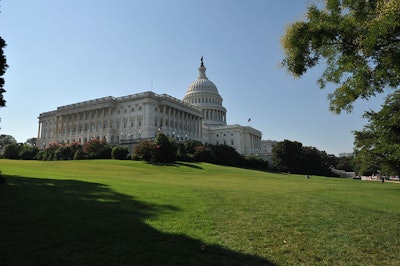
As Senators Cory Booker, Rand Paul and Kirsten Gillibrand announced the introduction of legislation to legalize medical marijuana at the federal level, industry organizations quickly mobilized, sending email notifications and letters asking their constituents to put pressure on their U.S. Senators to support the bill.
Called The CARERS Act, the bipartisan bill is "the first time legislation that would make medical marijuana legal under federal law has been introduced in the Senate," noted Dan Riffle, director of Federal Policies for the Marijuana Policy Project (MPP), in an email letter to constituents. "The bill would make production, distribution, and possession of marijuana for medical purposes that’s legal under state law legal under federal law."
According to an email sent to constituents of the Drug Policy Alliance (DPA) from Bill Piper, the DPA Director of National Affairs:
"It will expand research into the health benefits of marijuana.
It will allow Veterans Affairs doctors to recommend marijuana to ailing veterans.
It will completely legalize high CBD strains of marijuana for medical treatment nationwide.
It will reclassify marijuana as schedule 2, admitting to the world that marijuana does in fact have medical benefits.
And it will allow banks to legally provide financial services to marijuana businesses."
The National Cannabis Industry Association (NCIA) released a statement that read, "The NCIA applauds the history-making introduction of a bipartisan Senate bill to legalize medical marijuana. The new legislation proposed by Senators Rand Paul (R-KY), Cory Booker (D-NJ), and Kirsten Gillibrand (D-NY) respects the will of states that have legalized medical marijuana, provides greater access for critically ill patients, removes impediments to research into medical marijuana, and opens up banking access for legal marijuana-related businesses."
NCIA Executive Director Aaron Smith commented in the statement, “This is a major step forward for cannabis policy reform and the cannabis industry. This bill would stop treating patients and their providers as criminals and respect the states and researchers who have recognized the immense potential of cannabis as medicine. In addition, cannabis-related businesses of all kinds would no longer face the dangerous and absurd situation of being denied basic banking services.”
NCIA’s statement notes that the organization's "support of the legislation was not without reservation, however." The proposed legislation would move marijuana from a Schedule I drug–which the U.S. Drug Enforcement Agency lists as "drugs with no currently accepted medical use and a high potential for abuse"–to a Schedule II drug–listed by the DEA as drugs with a high potential for abuse, less abuse potential than Schedule I drugs, with use potentially leading to severe psychological or physical dependence. Some other Schedule II drugs are cocaine, methamphetamine, methadone, hydromorphone (Dilaudid), meperidine (Demerol), oxycodone (OxyContin), Adderall, and Ritalin.
NCIA stated that this move "would stop short of providing protections for individuals acting under state laws regulating marijuana for all adults."
“Marijuana does not belong in Schedule II,” Smith noted. “To dictate that placement without conducting a proper analysis to determine the best schedule is not appropriate given the body of research that has determined cannabis is a safer substance than many over-the-counter medicines. We do not believe that cannabis is as harmful as other Schedule II substances like oxycontin, cocaine, and methamphetamine, and we are disappointed that this legislation suggests they are," he commented. “That said, the Paul-Booker-Gillibrand legislation makes great strides toward compassionate access for patients in need and represents a saner approach to cannabis overall.”
To support the CARERS Act through the Drug Policy Alliance, click here.
To support it through the Marijuana Policy Project, click here.



























